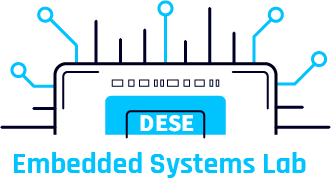| INTRODUCTION | TASK | QUEUE | TASK NOTIFICATIONS | INTERRUPT | RESOURCE |
An Introduction to FressRTOS
FreeRTOS is a real-time kernel (or real-time scheduler) targeting at hard real-time applications.
- Simple
- Portable
- Royalty free
- Concise
- Primarily written in C
- Few assembler functions
- Thumb mode supported
The Cortex-M3 Port of FreeRTOS
The Cortex-M3 port includes all the standard FreeRTOS features:
- Pre-emptive or co-operative scheduler operation
- Very flexible task priority assignment
- Queues
- Binary semaphores
- Counting semaphores
- Recursive semaphores
- Mutexes
- Tick hook functions
- Idle hook functions
- Stack overflow checking
- Trace hook macros
Data Types in FreeRTOS
| macro or typedef | actual type |
|---|---|
| portCHAR | char |
| portSHORT | short |
| portLONG | long |
| portFLOAT | float |
| portDOUBLE | double |
| portSTACK_TYPE | uint32_t |
| portBASE_TYPE | long Typically, this is a 32-bit type on a 32-bit architecture, a 16-bit type on a 16-bit architecture, and an 8-bit type on an 8-bit architecture. portBASE_TYPE is generally used for return types that can take only a very limited range of values, and for pdTRUE/pdFALSE type Booleans. |
| UBaseType_t | unsigned long |
| TickType_t | TickType_t is the data type used to hold the tick count value, and to specify times |
Variables and Functions Naming
Variables are prefixed with their type:
- c: for char
- s: for short
- l: for long
- x: for portBASE_TYPE and any other non-standard types (structures, task handles, queue handles, etc.).
- u: for unsigned
- p: pointer
- combinations are possible
If a variable is unsigned, it is also prefixed with a ‘u’. If a variable is a pointer, it is also prefixed with a ‘p’. For example, a variable of type uint8_t will be prefixed with ‘uc’, and a variable of type pointer to char will be prefixed with ‘pc’.
Functions are prefixed with both the type they return, and the file they are defined within. For example:
- vTaskPrioritySet() returns a void and is defined within task.c.
- xQueueReceive() returns a variable of type BaseType_t and is defined within queue.c.
- pvTimerGetTimerID() returns a pointer to void and is defined within timers.c.
File scope (private) functions are prefixed with ‘prv’.
Macro Names
Most macros are written in upper case, and prefixed with lower case letters that indicate where the macro is defined.
| Macro | Value |
|---|---|
| pdTRUE | 1 |
| pdFALSE | 0 |
| pdPASS | 1 |
| pdFAIL | 0 |
Customisation
FreeRTOS is customised using a configuration file called FreeRTOSConfig.h. Every FreeRTOS application must have a FreeRTOSConfig.h header file in its pre-processor include path. FreeRTOSConfig.h tailors the RTOS kernel to the application being built. It is therefore specific to the application, not the RTOS, and should be located in an application directory, not in one of the RTOS kernel source code directories.
- Constants that start with the text “config” define attributes of the kernel, or include or exclude features of the kernel.
- Constants that start with the text “INCLUDE_” are used to included or excluded FreeRTOS API functions from the application.
Some important fields/features:
- configUSE_PREEMPTION: This is set to 1 if the preemptive kernel is desired.
- configUSE_IDLE HOOK: An idle task hook will execute a function during each cycle of the idle task.
- configUSE_TICK HOOK: A tick hook function will execute on each RTOS tick interrupt if this value is set to 1.
- configTICK_RATE HZ: This is the frequency at which the RTOS tick will operate.
- configMAX_PRIORITIES: The total number of priority levels that can be assigned when prioritizing a task.
- configUSE_COUNTING_SEMAPHORES: This is set to 1 if counting semaphores are required.
- configUSE_MUTEXES: This is set to 1 if mutexes are needed. Priority inheritance will then be enforced.
- etc…
Resources Used By FreeRTOS
FreeRTOS makes use of SysTick, PendSV, and SVC interrupts. These interrupts are not available for use by the application. FreeRTOS has a very small footprint. A typical kernel build will consume approximately 6KB of Flash space and a few hundred bytes of RAM. Each task also requires RAM to be allocated for use as the task stack.

Recent Comments